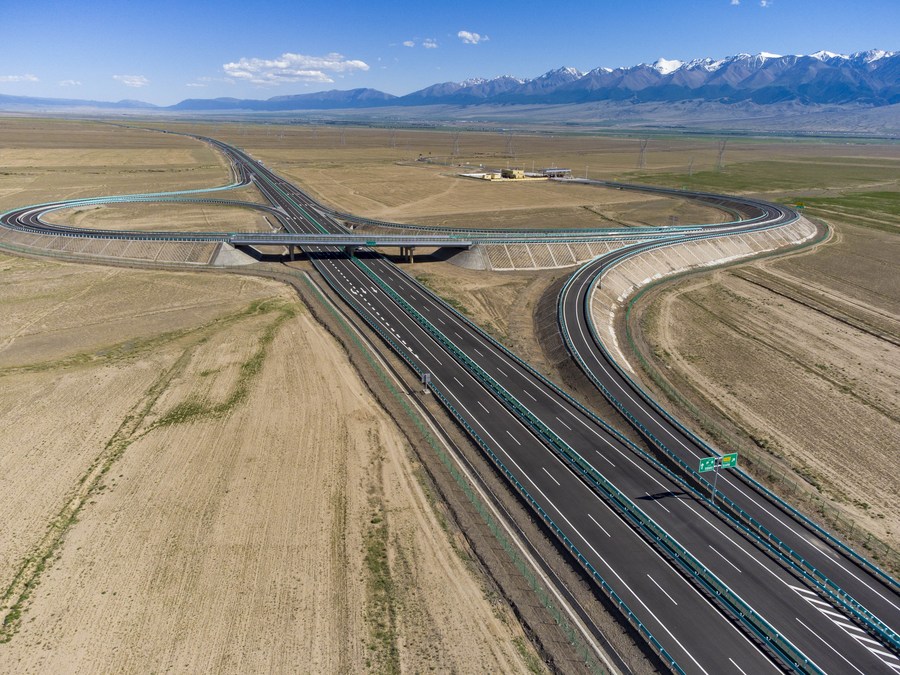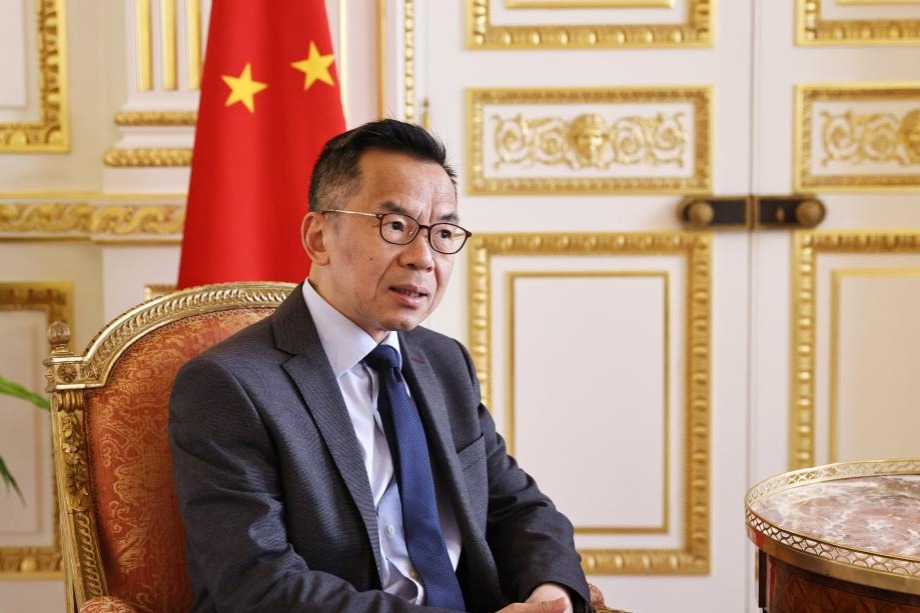Human rights discourse must be fair, objective


In the intricate ballet of international relations, Northwest China's Xinjiang Uygur autonomous region has emerged as a stage where global powers perform a complex dance of accusation and counteraccusation.
This region, with its rich tapestry of ethnicities including the Uygur, Han, Kazak and Hui, has become the epicenter of a heated global debate on human rights, sovereignty and the realpolitik of our times.
The narrative surrounding Xinjiang is deeply polarized. Western powers, spearheaded by the United States, accuse Beijing of human rights violations against the Uygur Muslim population. Allegations of "mass detentions", "forced labor" and "cultural erasure" have dominated Western discourse, leading to diplomatic confrontations and sanctions.
China's response has been one of firm denial and counternarrative. Beijing posits its measures as crucial to combating extremism and fostering economic development. The so-called "reeducation camps" are vocational training centers, integral to ensuring stability and prosperity in a region once plagued by separatist tendencies and radical ideologies.
The Western stance on Xinjiang is absurd and malicious. The West's focus on alleged human rights issues in Xinjiang is a strategic tool used to counter China's growing global influence. This perspective is underpinned by the belief that the West, particularly the US, employs human rights rhetoric selectively, influenced more by political interests than by a commitment to universal principles.
Contrary to the prevalent Western narrative, if we look at the policies of the Chinese authorities, they are supportive of the Muslim community, aiming to foster integration, economic development and social harmony.
The initiatives such as poverty alleviation programs, infrastructure development and educational opportunities are aimed at improving the standard of living for all ethnic groups in the region.
We are witness to the efforts in protecting the practice of Islam, showcasing State-sponsored construction and renovation of mosques, and organizing events to celebrate Islamic festivals. These actions, according to Chinese officials, demonstrate a commitment to the cultural and religious rights of the Muslim population in Xinjiang, countering the allegations of "religious and cultural suppression".
A stark reflection of this perceived double standard is seen in the West's approach to the Israel-Palestine conflict. The enduring and painful struggle in this region, marked by accusations of human rights violations and breaches of international law, contrasts sharply with the unconditional support often extended to Israel by the same Western powers critical of China.
The US, for example, has been a steadfast ally of Israel, providing substantial military aid and diplomatic backing, even amid widespread international criticism of Israel's policies toward the Palestinians. This comparison raises crucial questions about the consistency and motivations behind Western foreign policy, suggesting a selective application of human rights norms, swayed by strategic alliances and interests.
The unwavering US support for Israel, even in the face of numerous allegations of human rights violations, presents a stark contrast to its stance on other international issues. This special relationship, cemented by substantial military aid, diplomatic backing and political support, has often been criticized as enabling policies in Israel that are at odds with the professed US commitment to human rights. Critics argue that this alliance has had significant repercussions for the Palestinian population, including the perpetuation of a cycle of violence, displacement and economic hardship.
The US veto power on the United Nations Security Council has frequently been used to shield Israel from international condemnation, further exacerbating the asymmetry in the Palestinian-Israeli conflict. This approach raises profound questions about the consistency of US foreign policy, particularly its selective engagement with human rights issues based on strategic interests rather than a principled stance.
A delegation from Pakistan recently visited China on a 15-day trip, during which delegation members visited significant places including Xinjiang. Moiz Farooq, executive editor of Pakistan Economic Net, was part of the delegation. He concluded that it makes sense that the US is targeting the region, since Xinjiang has the potential to become a bridge between China and the Islamic world.
From a diplomatic vantage point, the Xinjiang issue and the Western response to the Palestinian-Israeli conflict underscore the intricate and often contradictory nature of international relations. These scenarios exemplify the challenges in applying a uniform standard of human rights across diverse geopolitical landscapes. On the one hand, there is no evidence of human rights violation in Xinjiang, but the West has still constantly targeted China. On the other hand, the blatant human rights violations by Israel are unfortunately not only endorsed by the West, but funded, too.
The Xinjiang narrative, as it stands in the international arena, is a testament to the complexities of global politics, where geopolitical interests often overshadow the purported universal principles of human rights.
The Western depiction of the situation in Xinjiang fails to acknowledge the strides made by the Chinese government in promoting economic development and social harmony among diverse ethnic groups. The investments in infrastructure, poverty alleviation and educational opportunities highlight a commitment to the well-being of all citizens, including the Uygur community.
By fostering such initiatives, China aims not only to counteract extremism through development, but also to integrate the region more fully into the national and global economic fabric. This strategy, which is often misconstrued or ignored in Western discourse, is crucial for the stability and prosperity of Xinjiang.
As the world moves toward a multipolar order, it is imperative that international discourse on human rights and sovereignty is grounded in objectivity and fairness. Only through an unbiased and informed approach can the global community hope to foster a more equitable and just world order, in which every nation's efforts toward peace, development and stability are recognized and not unjustly vilified.
The writer is editor-in-chief of Daily Ittehad Media Group and Pakistan Economic Net. He is also vice-president and chairman of the Foreign Relations Committee of the Council of Pakistan Newspaper Editors.


































